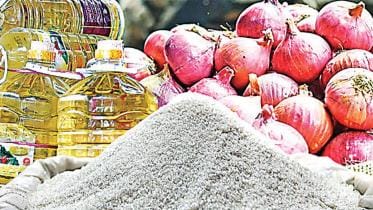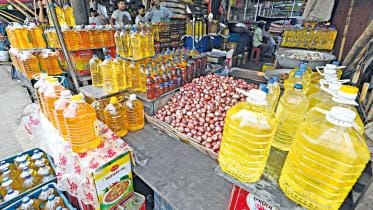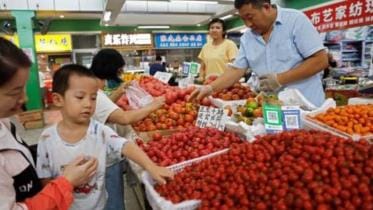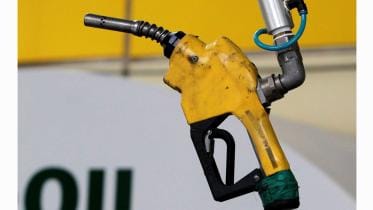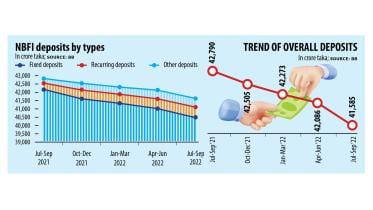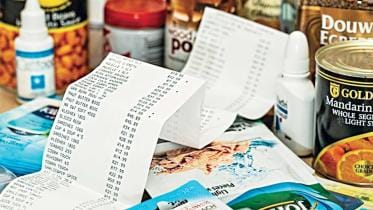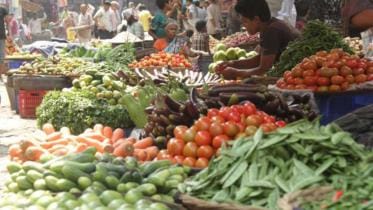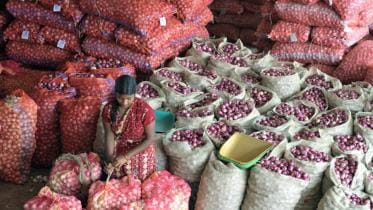commodity prices
Food prices show mixed trends this Ramadan
Compared to Ramadan 2024, several essential goods remain cheaper, but concerns remain over volatility in the market.
1 March 2025, 14:39 PM
Tax cuts yield limited impact on rising commodity prices: NBR chairman
Egg, sugar prices became cheaper to some extent, not other commodities, he says
9 December 2024, 14:27 PM
Commodity prices to experience slight downturn in 2024 and 2025: World Bank
Commodity prices are projected to experience a slight downturn in 2024 and 2025 but are expected to remain above pre-pandemic levels, according to the World Bank
11 May 2024, 08:31 AM
China tips into deflation as efforts to stoke recovery falter
China's consumer sector fell into deflation and factory-gate prices extended declines in July, as the world's second-largest economy struggled to revive demand and pressure mounted for Beijing to release more direct policy stimulus.
9 August 2023, 07:12 AM
Commodity prices decline further globally in March
Energy prices declined 6.3 per cent in March, led by natural gas in Europe and coal, the World Bank’s Pink sheet reported.
9 April 2023, 05:40 AM
Commodity prices soaring for domestic market distortion: CPD
Prices of essentials are rising sharply and going beyond the people’s reach due partly to domestic reasons, including market distortion by a small number of dominant firms and lax regulations, said the Centre for Policy Dialogue (CPD) today.
27 March 2023, 09:24 AM
Non-bank deposits on the wane
Non-bank financial institutions (NBFIs) have been witnessing a persistent fall in deposits for the past one year as many clients withdrew their savings to manage expenses amid the soaring cost of living and lower returns.
26 December 2022, 02:00 AM
Economy paying the price of cheap funds
The current lending rate, which equals the inflation rate, has brought about major challenges for the economy as a negative interest rate has prompted many large clients to borrow hugely despite subdued demand, giving them the leeway to divert funds to the unproductive sector.
9 November 2022, 02:10 AM
Prices of essential commodities: Fresh hike adds to plight of low-income people
Amid the struggle to cope with the record hike in edible oil prices, a fresh surge in prices of other daily essentials has dealt a further blow to those with low incomes.
14 May 2022, 03:00 AM
Commodity prices going out of hand
The month of Ramadan is a time of sacrifice. But what is going on in our markets? Prices of daily necessities are constantly on the rise. Vegetables, fish, meat, spices and rice are all costlier than before and have even become unaffordable for some.
26 May 2018, 18:00 PM
India's economic growth slows to 7%
India's economy grew at an annual rate of 7% between April and June, official figures have shown.
31 August 2015, 14:14 PM
